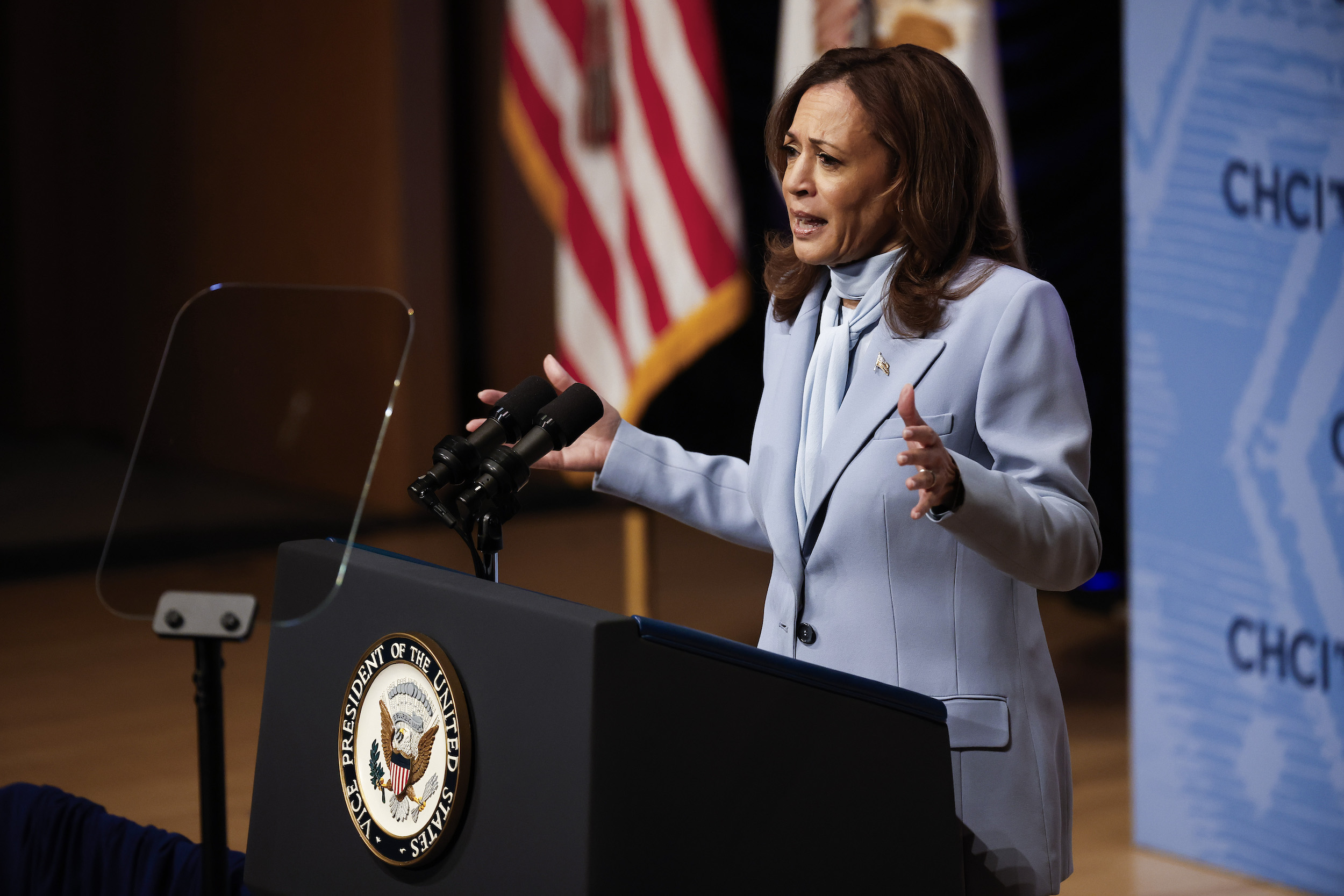Voters worried about their pocketbooks this election cycle are probably experiencing a sense of déjà vu as candidates misplace blame on big business, immigrants, or foreign competition as the root cause of household financial woes.
Corporations are the target of presidential candidate Kamala Harris‘ recently announced economic policy platform. Are your grocery bills too high? Blame big grocery companies fixing prices. Is your rent too high? Blame big businesses buying houses in bulk and fixing rents. Big Pharma also plays its usual lead villain role for high drug prices in the Harris plan. Surprisingly, energy companies got a pass on this policy wishlist despite being the usual suspect for most Democratic campaigns.
When the diagnosis of a problem is misguided, the policies prescribed to address it will also be misguided. Despite not being explicit, VP Harris’ platform mentions “price gouging” multiple times, whether it is grocery bills or rental rates, and vows to prevent it by working with Congress. The details are murky, except for a mention of a “federal ban on price gouging on food and groceries,” and of a need to “set clear rules of the road to make clear that big corporations can’t unfairly exploit consumers to run up excessive profits on food and groceries.”
Again, while the platform explicitly mentions no specific policy provisions, past policy measures, most recently during the 2022 energy prices crisis, took the form of a windfall profit tax. At the state level, California carried the flag with the California Gas Price Gouging and Transparency Law, which went into effect last year. The law established “a dedicated state independent watchdog to root out price gouging by oil companies and authorize[d] the California Energy Commission (CEC) to create a penalty to hold the industry accountable.” It received immediate pushback from neighboring states. Nevada Governor Joe Lombardo rightly shared his concerns with Governor Gavin Newsom about the negative effect of the law on “the costs and availability of fuel for Nevada’s residents and businesses.”
Governor Lombardo is right when it comes to the economic effects of policies that focus on “price gouging.” Any surtax or arbitrary limitation on profit can change the economics of a project, decreasing investment and production in the sector. That could have direct and indirect effects on other sectors of the economy down the supply chain—including job losses, decreases in consumption, and ultimately a slowdown of economic growth. The use of windfall profit taxes in the 1980s, targeting the oil and gas industry, caused domestic oil production to decrease precipitously except when crude oil prices declined below the adjusted base price, resulting in zero windfall profit tax.
Kevin Dietsch/Getty Images
The root of the problem of higher prices, whether in the housing or food sector, is the imbalance in demand and supply. Rather than trying to limit supply through policies that could impact investment, politicians should focus on increasing supply.
The U.S. is becoming notorious for enacting regulations that reduce supply in a number of sectors. Throwing in more regulations or increasing regulatory oversight will further deter supply growth in these sectors. VP Harris did, at least, recognize the negative role of regulations when she suggested the need to “cut red tape and needless bureaucracy” to help increase the supply of new housing. This policy should not be specific to the housing sector, however. It ought to form the basis of policymaking in all sectors.
Another issue the Harris platform fails to consider is how restrictions on the profits of companies might affect our ability to meet environmental goals in the future. Climate change and policies aimed at addressing its consequences require a significant investment for many sectors. While experts focus on the fossil fuel sector, other sectors, including real estate and food, are also impacted by these goals. Growing calls for Environmental, Social, and Governance principles risk their access to capital, further negatively affecting investment. New policies imposing any restriction on profits could further restrict capital, decreasing investment and production.
Another important point to remember is that these calls create more uncertainty in an already uncertain economy. A 2022 IMF report looking at temporary tax measures like windfall profit taxes showed they can reduce future investment “because prospective investors will internalize the likelihood of potential taxes when making investment decisions.”
A growing economy with ambitious targets, such as climate goals, requires capital and continuous investment. Rather than vilifying big businesses and targeting their profits, candidates should come up with policies that increase access to capital and mobilize investment. That would be a more constructive dialogue than the current gimmicks we are witnessing when it comes to policy design in the 2024 U.S. election.
Dr. Pinar Çebi Wilber is Chief Economist and Executive Vice President of the American Council for Capital Formation.
The views expressed in this article are the writer’s own.
